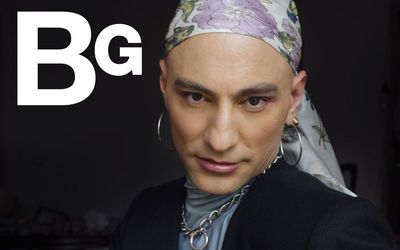Mojana (2021)
Mojana (2021, 18 min., with Nadia Granados) is an associative re-interpretation of a Colombian myth. The film centers on the seductive, man-eating Mojana – a mermaid-monster that is both desired and punished. The film denounces the violence against this female mythical creature and raises it as a symbol of transfeminine resilience.
![Aribada [Still by Luciana Riso] Video still from the work "Aribada"](/assets/_processed_/a/e/csm_Video-Kunst-Berlin-Aribada_Still_10_by_Luciana_Riso___Paetau___Escobar_43387ef7b1.jpg)

